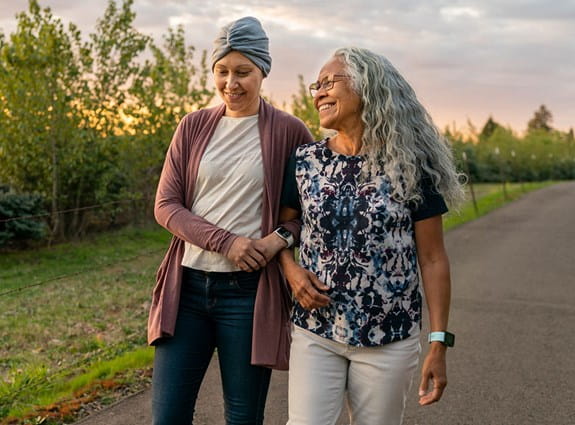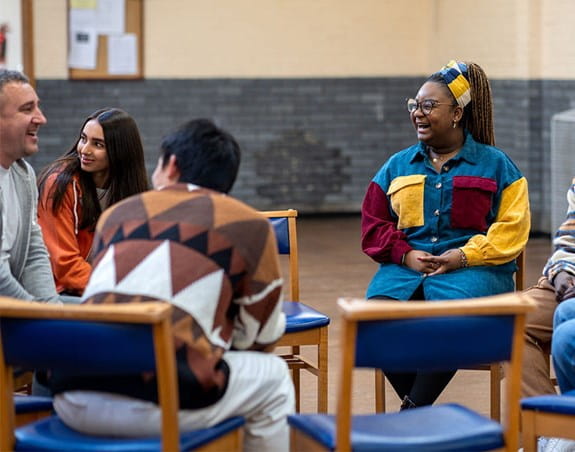
Innovation Challenges
Help fund world-leading cancer research
With almost half of all Canadians expected to face a cancer diagnosis in their lifetime, the urgency for funding is at an all-time high. Research holds the key to transforming the future of cancer.
If everyone reading this joins our monthly donor community today, we can keep up the momentum for life-changing discoveries to better detect, diagnose and treat all types of cancer.
Please donate today because every contribution counts.
What is an Innovation Challenge?
An innovation challenge is a public call for ideas, solutions, or technologies that invites a wide range of people, individuals, teams, organizations, or communities to help solve a specific problem. At the Canadian Cancer Society, we use innovation challenges as a way to crowdsource creative, practical, and community driven solutions to complex health issues, such as improving access to cancer screening in rural and remote areas.
These challenges are designed to open the door to new voices and perspectives. We welcome contributions from healthcare professionals, technologists, community leaders, and researchers. This approach helps us reach communities that are often underserved and ensures that solutions are grounded in real world experience.

The Canadian Cancer Society has partnered with MaRS Discovery District to launch the Rural and Remote Community Cancer Screening Challenge, a nationwide initiative aimed at identifying and supporting community designed solutions to increase participation in cancer screening across rural and remote communities in Canada.
People living in these communities face real and persistent barriers to accessing cancer screening from fewer healthcare providers and limited infrastructure to longer travel times and higher costs. These challenges contribute to later diagnoses and lower survival rates compared to those in urban areas.
This initiative will award a total of $175,000 across two phases to support bold, practical solutions that help more people get screened earlier and more often so we can save more lives.
Launched on May 8, the challenge invites researchers, innovators, public sector leaders, students, universities, rural and remote advocates, and technology experts to participate.
Our Finalists
Applications are now closed.
The Canadian Cancer Society and MaRS are proud to announce the five finalists of the Rural and Remote Cancer Screening Innovation Challenge. Each finalist will receive $15,000 in prizing to support the continued development of their innovative approaches to improving cancer screening participation in underserved communities.
These finalists represent a diverse range of ideas from across Canada—including solutions developed by individuals and organizations rooted in the very communities they aim to serve. Their work reflects deep local insight and a strong commitment to addressing barriers in rural and remote cancer screening.
The grand prize winner will be announced in Spring 2026.
Previous challenge spotlight
The Colorectal Cancer Early Detection Challenge
Meet the Winner: Niagara Folk Arts Multicultural Centre
The Canadian Cancer Society’s first innovation challenge, in partnership with MaRS, called on innovators to develop solutions that meaningfully engage underserved populations and address barriers that prevent or hinder the early detection of colorectal cancer.

